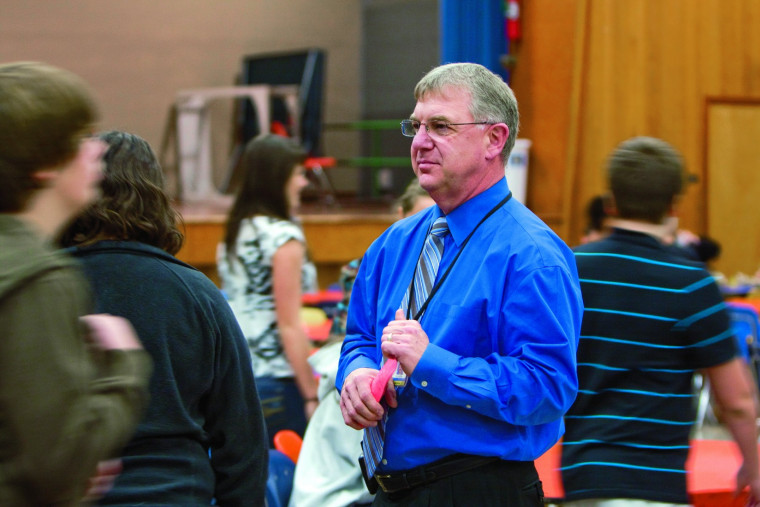Covering All the Bases as Middle School Principal of the Year
The story of Chris Mills MAT ’84
Open gallery

By Pattie Pace
In 1970, when Chris Mills MAT ’84 was 15, he took a summer job as coach of a junior baseball team. Rain or shine, he taught elementary-age boys the basics of fielding, switching up pitches, and smacking one out of the park—or at least past the infield. A constant focus was teamwork.
“I remember having a parent, who seemed very old to me at that time, tell me what a great job I did with those kids,” says Mills, principal of Gardiner Middle School in Oregon City. “At that moment, I decided I wanted to be a teacher—and I never wavered.”
His dedication has not gone unnoticed.
After 31 years as a coach, teacher, and administrator, Mills was named the 2009 Oregon Middle School Principal of the Year by the Oregon Association of Middle School Administrators and the National Association of Secondary School Principals.
He and his wife, Malea, attended a four-day conference and black-tie banquet with other honorees last October in Washington, D.C., where U.S. Secretary of Education Arne Duncan delivered the keynote address. Sponsored by the National Association of Secondary School Principals, the event also offered valuable workshops and networking opportunities.
“It was a career-affirming experience,” says Mills.
Back home on the job, Mills attributes his management success to unyielding patience and sharp listening skills. Instead of issuing mandates, he works collaboratively with teachers, coaches, janitors—everyone who works at Gardiner—to arrive at decisions that benefit the entire learning community.
“If I isolate myself, I’ll lose my staff’s respect,” says Mills.
He encourages teachers at Gardiner to adopt a similar collaborative approach. One of the school’s hallmark programs, Professional Learning Communities, brings together teachers outside the classroom to discuss teaching standards, share successes and failures, and devise creative solutions to classroom problems.
From such gatherings, new ideas emerge, such as Gardiner’s fledgling Enrichment Program. Each school day includes a 30-minute session where students who need extra help in math, reading, and writing can get individual attention. Other students can use that time to explore options like science labs, Japanese language courses, or guitar lessons.
“We still have work to do,” says Mills, “but the program has real potential.”
So do students at his school.
“I love working with middle-school students,” he says. “They’re acutely inquisitive, spirited, and imaginative— and they’re still at an age where they’ll laugh at my jokes.”
—by Pattie Pace
More L&C Magazine Stories
Lewis & Clark Magazine is located in McAfee on the Undergraduate Campus.
MSC: 19
email magazine@lclark.edu
voice 503-768-7970
fax 503-768-7969
The L&C Magazine staff welcomes letters and emails from readers about topics covered in the magazine. Correspondence must include your name and location and may be edited.
Lewis & Clark Magazine
Lewis & Clark
615 S. Palatine Hill Road MSC 19
Portland OR 97219

